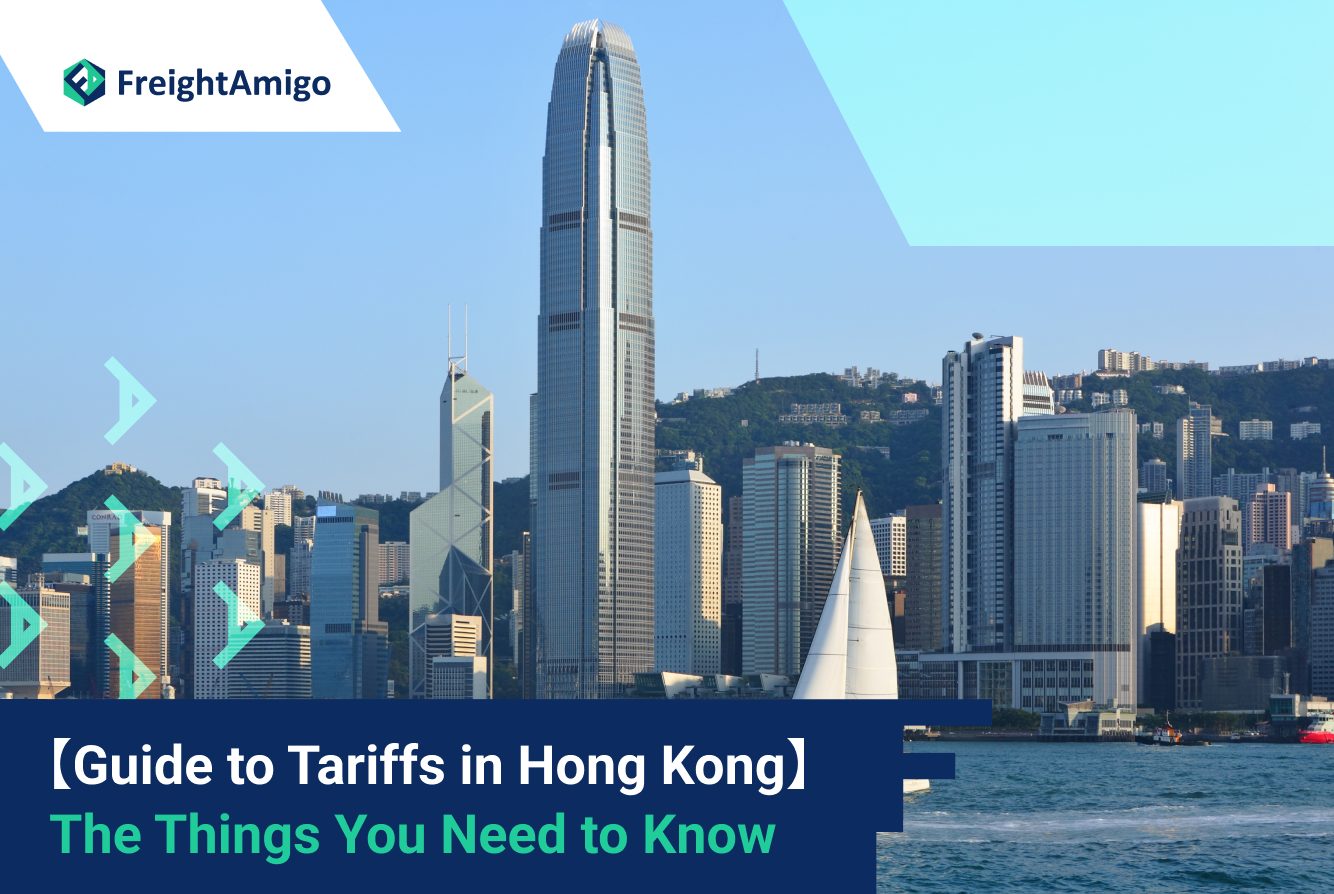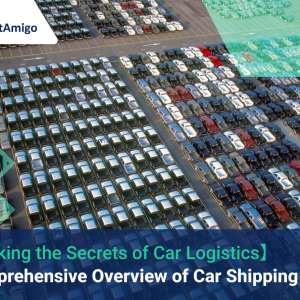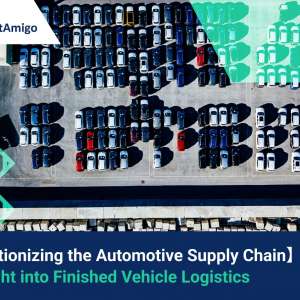Author Name: Tiffany Lee – Marketing Analyst at FreightAmigo
Hong Kong is a global business and trading hub known for its favorable tax policies and liberal trade environment. When it comes to import custom tariffs and duties, Hong Kong imposes certain regulations to protect local industries and generate revenue. In this comprehensive guide, we will explore everything you need to know about import custom tariffs and duties in Hong Kong, including an overview of tariffs and non-tariff barriers, Hong Kong free trade agreements, the Transhipment Cargo Exemption Scheme, and legal and administrative actions. Whether you are a business owner or an individual looking to import goods into Hong Kong, this guide will provide you with valuable insights to navigate the complexities of import customs.
Want To Compare The Best Express, Air Freight, Sea Freight, Rail Freight & Trucking Rates So As To Have Better Control On Cost?
Tariffs and Non-Tariff Barriers
Tariffs, also known as customs duties, are taxes imposed on goods or services as they are moved from one state to another. In Hong Kong, the general tariff on imported goods is zero, making it a free port. However, there are excise duties applicable to certain commodities, including alcoholic liquors, tobacco, hydrocarbon oil, and methyl alcohol. These duties are charged regardless of whether the goods are locally manufactured or imported.
When it comes to alcoholic beverages, spirits exported to Hong Kong are subject to import duty, while beer and wine are exempt. Liquor with an alcohol content of more than 30% is subject to ad valorem duty, while wine and liquor with an alcohol content of not more than 30% are exempt. Additionally, beverages containing more than 30% alcohol content are subject to excise duty, unless they are to be re-exported and not consumed in Hong Kong.
Hong Kong imposes no non-tariff measures to protect domestic industries. However, the city has various non-tariff measures in place to protect public health, safety, security, and the environment. These measures usually come in the form of license requirements and are issued by the License Branch of the Trade and Industry Department. Import licenses are required for items such as ozone-depleting substances, powdered formula, rice, rough diamonds, strategic commodities, textiles, wine exports to Mainland, and Mainland cereals and grain flour.
Hong Kong Free Trade Agreements (FTAs)
To secure better conditions for its goods and services in the Mainland and international markets, Hong Kong has signed several Free Trade Agreements (FTAs). These agreements aim to enhance economic cooperation and integration between Hong Kong and its trading partners. Some of the key FTAs Hong Kong has signed include:
- Mainland China
- New Zealand
- The Member States of the EFTA (European Free Trade Association)
- Chile
- Macao
- Association of Southeast Asian Nations (ASEAN)
- Georgia
- Australia
These FTAs cover various aspects of trade, including trade in goods, trade in services, investment, and dispute settlement mechanisms. By leveraging these agreements, businesses can enjoy preferential treatment and improved market access in these economies.
Mainland and Hong Kong Closer Economic Partnership Arrangement (CEPA)
The Mainland and Hong Kong Closer Economic Partnership Arrangement (CEPA) is a landmark free trade agreement between the Mainland of China and Hong Kong. Signed in 2003, CEPA aims to enhance economic cooperation and integration between the two regions. It provides favorable treatment for Hong Kong goods and services, opening up huge markets for Hong Kong businesses. CEPA is based on a building block approach, with both sides continuously working together to introduce further liberalization measures.
Hong Kong, China – New Zealand Closer Economic Partnership Agreement
New Zealand is an important trading partner of Hong Kong. In 2019, the bilateral trade in goods between Hong Kong and New Zealand amounted to HK$11.4 billion. The Hong Kong, China – New Zealand Closer Economic Partnership Agreement (CEP Agreement), signed in 2010, promotes trade and economic cooperation between the two economies. This agreement was Hong Kong’s first FTA with a foreign economy and has significantly contributed to the growth of trade and services between the two regions.
Hong Kong, China, and the Member States of the EFTA
Hong Kong has a comprehensive Free Trade Agreement (FTA) with the Member States of the European Free Trade Association (EFTA), including Iceland, Liechtenstein, Norway, and Switzerland. This agreement, signed in 2011, covers trade in services and goods, investment, and intellectual property protection policies. It has strengthened Hong Kong’s trade relations with the European economies and created new opportunities for businesses in both regions.
FTA between Hong Kong, China, and Chile
Hong Kong has an FTA with Chile that was signed in 2012. This agreement followed a joint feasibility study between the two economies, which identified the potential benefits of improving trade and economic relationships. The FTA covers various areas, including trade in goods, trade in services, and labor cooperation. It has enhanced trade and economic ties between Hong Kong and Chile, benefiting businesses in both regions.
Hong Kong and Macao Closer Economic Partnership Arrangement (HK-Macao CEPA)
Hong Kong and Macao have a strong bilateral trade relationship, and the HK-Macao CEPA further strengthens economic cooperation between the two regions. The agreement, signed in 2017, provides improved market access and treatment for Hong Kong and Macao businesses beyond what is offered by the World Trade Organization (WTO). It covers a wide range of sectors and promotes closer economic integration between Hong Kong and Macao.
Hong Kong, China – Georgia FTA
Hong Kong and Georgia signed an FTA in 2018, covering trade in goods, trade in services, investment, and dispute settlement mechanisms. This FTA has created new opportunities for businesses in both regions and strengthened economic cooperation between Hong Kong and Georgia.
Hong Kong, China – ASEAN FTA
Hong Kong and the Association of Southeast Asian Nations (ASEAN) have a comprehensive FTA that covers trade in goods, trade in services, and investment. This agreement, signed in 2017, extends Hong Kong’s FTA network to cover all important economies in Southeast Asia. It has facilitated trade and economic integration between Hong Kong and ASEAN countries.
FTA between Hong Kong, China, and Australia
Hong Kong and Australia have a comprehensive FTA that covers various aspects of trade, including trade in goods, trade in services, investment, government procurement, intellectual property, competition, and dispute settlement mechanisms. This FTA, signed in 2019, has strengthened economic ties between the two regions and provided new opportunities for businesses in Hong Kong and Australia.
Transhipment Cargo Exemption Scheme (TGES)
The Transhipment Cargo Exemption Scheme (TGES) allows airlines, shipping companies, and freight forwarders registered under the scheme to be exempted from import and export licensing requirements for transhipment cargo. Transhipment cargo refers to imported articles that are consigned from a place outside Hong Kong to another place outside it. The scheme covers various types of cargo, including pharmaceutical products and medicine, rice, frozen or chilled meat and poultry, Chinese herbal medicines, powdered formula, and rough diamonds. However, if the countries involved in the import or export of these goods are subject to trade sanctions, the transhipment cargo is not eligible for licensing exemption under the scheme.
Legal and Administrative Actions
Compliance with import and export regulations is crucial to avoid legal and administrative actions. Hong Kong has laws and regulations in place to regulate import and export activities, including the Import and Export Ordinance, Reserved Commodities Ordinance, and Ozone Layer Protection Ordinance. Breach of these regulations can result in fines and imprisonment. The Import and Export Ordinance, for example, stipulates an unlimited fine and a maximum imprisonment sentence of seven years for any breach of the regulations. Traders and registered businesses may also face administrative actions, such as license suspensions or revocations, rejection of licenses, and cancellation or revocation of certificates of origin.
How to Apply for Import/Export-Related Services?
To apply for import/export services in Hong Kong, individuals can submit the necessary documents in person, by mail, or electronically. The Trade and Industry Department categorizes services and means of submission, allowing for easy access and efficient application processes. It is recommended to check the specific requirements and procedures for each service before applying.
Conclusion
Understanding import customs tariffs and duties in Hong Kong is essential for businesses and individuals engaging in international trade. By familiarizing yourself with the regulations, free trade agreements, and exemption schemes, you can optimize your import operations and ensure compliance with customs regulations. FreightAmigo, a trusted partner in navigating import customs, offers comprehensive logistics solutions to help businesses accurately classify goods, calculate import duties, and access preferential trade programs. With their expertise and support, you can streamline your import processes and maximize efficiency in international trade.
For more information and assistance, contact FreightAmigo today and unlock the full potential of your import operations.
There Are Different Options For Cargo Transportation. If You Want To Choose The Most Convenient And Suitable Solution, It Is Best To Have The Full Support Of Logistics Experts! If You Are Planning To Ship Goods Overseas, Please Go To The FreightAmigo Page For Inquiries.
===
Read More:
【Logistics News】Singapore to Sign Declaration on Green Shipping Corridors
FreightAmigo Won Startup Grand Award In TechChallenge — Digitising Trade Finance
Sailing Schedule: Streamlining Logistics Operations for Efficient Shipments
===
If you have any inquiries on logistics/supply chain, feel free to contact FreightAmigo now:
Chat with us online OR
Phone : +852 28121686
WhatsApp: +852 27467829









































